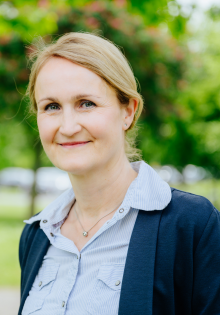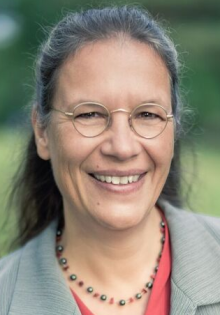To promote STEM education for children and young people in the long term: This is the goal of a new interdisciplinary research project at Paderborn University. The project, entitled ‘transMINT4.0’, aims to bridge the gaps in STEM learning at the transition between primary and secondary school. The university’s Didactics of Primary Science Education (Professor Eva Blumberg, project leader) and Technical Education (Professor Katrin Temmen) departments have joined forces for the project. In three related lines of research and development, the aim is to determine factors for success, in particular how children’s and young people’s interest in STEM subjects can be maintained in the long term. Extra-curricular learning venues in conjunction with the use of digital media as a support play a key role here. The collaborative Paderborn project, which will run for three years, is due to start this autumn and is set to receive around €800,000 in funding from the German Federal Ministry of Education and Research (BMBF).
Motivation decreases after transition to secondary school
“Children are very inquisitive explorers by nature and enter primary school as such. However, it is very worrying that this urge to explore is seemingly not yet optimally catered for in science lessons in primary school: In Germany, by the end of the equivalent of Year 5, not even half of pupils (9-10 year-olds) have achieved the level of scientific knowledge they need for the transition to secondary school. This is proven by the long-term findings of international comparative school performance study TIMSS (Trends in International Mathematics and Science Study). However, these Year 5 pupils do not appear to have been demotivated, because the TIMSS results regularly attest to a very positive attitude towards science lessons and topics as they prepare to move on to secondary school. It is after their transition to secondary school that the picture begins to change: The way in which science is taught in secondary schools is different to how it is taught in primary, and young people’s interest in and motivation for learning science decreases. Problems relating to competency in science as a subject also become evident, especially among less able young people. With our collaborative project, we want to counter these shortcomings, which in particular affect STEM learning at the transition to secondary school, by pooling our expertise in STEM subjects and primary and secondary education. On the basis of this, we plan to develop modules to interlink the different school levels, with a particular focus on digitally enhanced extra-curricular learning,” explains project leader Professor Eva Blumberg.
Closely linking theory and practice
The project team is delighted that ‘transMINT4.0’ is now able to get underway, with the co-operation of almost 40 educational and extra-curricular supporters from the region. A kick-off event with representatives from more than ten primary schools, the local education authority and regional and district government, the City of Paderborn’s extra-curricular educational venues and other supporters, as well as Paderborn’s zdi (Future through Innovation) centres is due to take place shortly, to which the organisers invite participants. “In line with our design-based research approach, in which theory and practice go closely hand in hand from the outset, the comprehensive participation of educational and extra-curricular partners is incredibly important to us. It will enable us to build on our experience in digitally-enhanced extra-curricular learning for primary science topics in the context of sustainability and education for sustainable development (ESD), for example wind power and the careful use of water resources,” continues Blumberg. Project partner Professor Katrin Temmen agrees: “Combining our expertise with field-tested mobile courses from the coolMINT schools STEM lab, which can be booked by schools and youth groups on various, primarily technical topics, provides the perfect basis from which to achieve our project goal. We already offer these courses in the BMBF-funded STEM cluster ‘MINT4.OWL’. We were also lucky enough to gain the regional zdi centres as stakeholders for transMINT4.0. We will evaluate the courses offered with regard to optimising the transition between primary and secondary school and the teaching of science in primary schools and further develop them based on research”. The researchers are expecting to see initial, ground-breaking results in spring or summer of next year.

![[Translate to English:] [Translate to English:]](/fileadmin/_processed_/2/c/csm_Digitale_Bildung_klein_9bfe909329.jpg)



